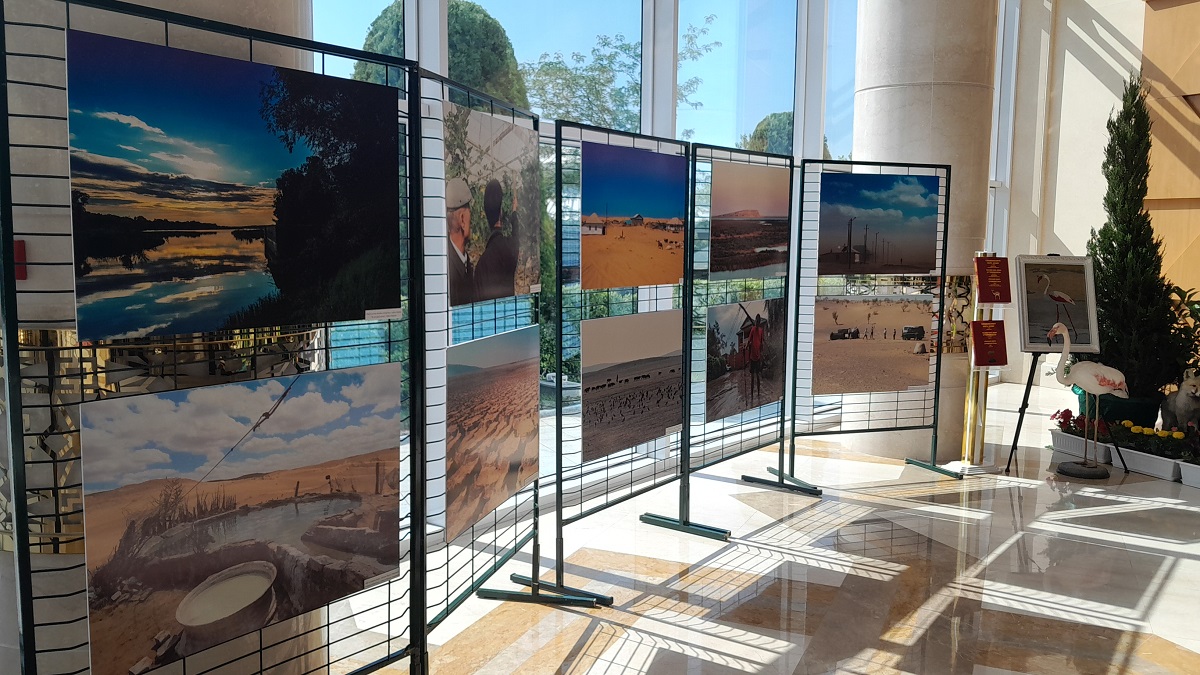The 7th Central Asian Climate Change Conference opened in Ashgabat
13.05.2025 | 14:25 |The 7th Central Asian Climate Change Conference (CACCC-2025) opened in Ashgabat today, on May 13. This major regional conference, dedicated to achieving the global goal on climate finance through regional and national actions in Central Asia, brought together leading experts, government representatives and international organizations in the Turkmen capital. It is attended by about 250 people, including senior government officials from Central Asian countries responsible for climate change issues, representatives of the ministries of finance and economy, civil society, academia, business and development partners.
The conference also attracted experts from key sectors related to climate resilience, including environmental protection, water resources management, agriculture, forestry, health, emergency services and energy. This diverse group of participants facilitates cross-sectoral dialogue and strengthens joint efforts to effectively address climate change challenges in the region.

The first day of CACCC-2025 opened with a welcome session moderated by Zafar Makhmudov, Executive Director of the Regional Environmental Centre for Central Asia (CAREC). Following the opening speech and the screening of the video “Turkmenistan: Climate Change and Green Transition”, high-ranking officials and representatives of international organizations addressed the participants with greetings. Among them were Charygeldi Babanyazov, Minister of Environmental Protection of Turkmenistan, Valerie Hickey, Global Director for Climate Change at the World Bank, Sergey Makarov, Director of the GIZ Regional Programme, Beata Peksa, Ambassador of the European Union to Turkmenistan, Olga Pilifosova, Representative of the UNFCCC Secretariat, and Narine Saakyan, UNDP Resident Representative in Turkmenistan.


The official opening was followed by an introductory high-level plenary session on “Regional and National Climate Policy: Achievements and Plans”. Moderated by the Advisor to the Ministry of Foreign Affairs of Turkmenistan, Makhtumkuli Akmuradov, the session began with an introductory presentation by CAREC regional climate change specialist Vladimir Grebnev.
This was followed by a panel discussion with representatives of the Central Asian governments, who discussed the development of the climate agenda in their countries, the transition from NDC 2.0 to NDC 3.0, achievements and plans. The discussion was attended by the Minister of Environmental Protection of Turkmenistan, the Vice-Minister of Ecology of Kazakhstan, the Deputy Minister of Natural Resources of Kyrgyzstan, the Deputy Chairman of the Committee for Environmental Protection of Tajikistan and the Director of the National Climate Change Center of Uzbekistan.

The first day continued with the Panel Session “Climate Finance for Central Asia: Regional and National Perspectives”. During this session, presentations on mobilizing climate finance for Central Asia were given by representatives of climate funds, international agencies, multilateral and state development banks. Speakers included the British Ambassador to Turkmenistan, the Head of Cooperation of the EU Delegation to Kazakhstan, representatives of GIZ, the Italian Ministry of Environment, the NDC Partnership Support Unit, as well as Eldik Bank OJSC from the Kyrgyz Republic. The presentations were followed by a panel discussion with representatives of the Ministries of Finance and Economy of the Central Asian countries, dedicated to financial solutions and instruments for accelerating the implementation of climate priorities.

In the afternoon, the conference continued with sessions devoted to an in-depth consideration of key aspects of the climate agenda in the region.
For example, the session “Regional Climate Cooperation: Priorities and Climate Justice” includes a regional vulnerability assessment, expansion of climate observation networks, transboundary actions to reduce disaster risks and the development of climate-smart agriculture. Particular attention is paid to issues of climate justice, social inclusion, economic equality and support for vulnerable communities. Representatives of UN agencies such as UNFPA, UN Women and UNICEF are invited to the discussion.

Four thematic discussions are organized within the parallel sessions:
“Innovative tools for developing climate finance strategies in Central Asia”, dedicated to mobilizing funds through green bonds, debt swaps and integrating climate into macroeconomic planning.
“The Green Bridge Initiative: Innovative technologies to accelerate and strengthen NDC implementation”, which focuses on the transfer of green technologies and the creation of a corresponding digital platform.
“Climate actions of civil society and youth in Central Asia”, where the growing role of these groups and their contribution to the promotion of climate initiatives is discussed.
"CA Resiland+ Regional Coordination Meeting" aimed at monitoring and coordinating actions within the framework of the relevant program.
In addition to the busy business program, conference participants could also get acquainted with the exhibition "Introduction to the unique endemic flora and fauna of Turkmenistan", which opened in the morning before the start of the sessions.

Thus, the first day of CACCC-2025 set a high pace and identified key topics for discussion, focusing on national policies, regional cooperation, the critical issue of climate finance, as well as social justice and the role of various groups in society in climate action.

ORIENT











